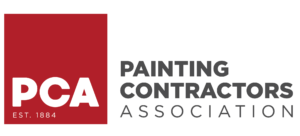
Contractor Marketing ROI: 3 Key Factors That Impact Your Success
You’re spending money on ads, SEO, and lead generation, but something isn’t adding up. Despite investing in marketing, you’re not seeing the returns you expected.
You’re not alone—many contractors face the same frustration when it comes to marketing ROI.
Common Frustrations
- “I’m getting leads, but they’re not closing.”
- “Marketing is too expensive.”
- “My agency isn’t delivering.”
If any of these sound familiar, you’re likely wondering if marketing even works. You might be considering cutting your budget, switching agencies, or trying a new strategy.
But before you do, it’s crucial to understand what’s reablly affecting your ROI.
The Truth: Your ROI Isn’t Just About Marketing
Most contractors assume their marketing results depend solely on their ad spend, SEO, or the agency they hire. While these things matter, they are only part of the equation.
Your ROI is actually shaped by three key factors that many contractors completely overlook:
- The Skillset of Your Agency: Is your marketing partner actually capable of delivering results? A bad agency can burn through your budget with little to show for it.
- Marketing Conditions (External Factors): Seasonality, competition, and local market conditions all impact your ROI, and failing to account for them leads to misaligned expectations.
- Your Ability to Convert Leads into Customers: Marketing generates leads, but your sales process determines if those leads turn into real revenue. If you’re not closing deals, no amount of marketing will fix the problem.
What You’ll Learn in This Guide
In this guide, we’ll break down these three critical factors in detail. You’ll discover exactly what’s holding back your marketing ROI and, more importantly, how to fix it.
Let’s get started with the first key factor: your marketing agency’s skillset—are they actually helping your business grow?
1. The Skillset of Your Agency: Are They Actually Good?
Not all marketing agencies are created equal. Many contractors assume that simply hiring a marketing agency guarantees success, but if your agency doesn’t understand the unique challenges of contractor marketing, they could be wasting your budget.
A strong agency does more than generate leads—it ensures that those leads are high-quality, nurtured properly, and aligned with your ability to close deals. If your marketing agency isn’t delivering measurable results, it may be time to reassess whether they are helping or hurting your ROI.
How to Evaluate Your Agency’s Performance
Choosing the right agency is one of the most important decisions a contractor can make for their business. Here’s how to determine if your agency is actually driving results or just burning through your budget.
Do They Specialize in Contractor Marketing?
Marketing for contractors is different from other industries. Your customers aren’t making impulse purchases—they’re making high-ticket decisions, often requiring multiple touch points before they commit.
A generalist marketing agency that works with dentists, e-commerce brands, and restaurants doesn’t understand the sales cycle of a painting, roofing, or remodeling business.
If your agency doesn’t specialize in contractor marketing, they may be using ineffective tactics that don’t align with how homeowners actually make hiring decisions.
A specialized agency will:
- ✅ Know which platforms work best for contractors (Google Local Services Ads, SEO, PPC, and retargeting)
- ✅ Understand the importance of Google My Business rankings and online reviews
- ✅ Optimize campaigns to attract serious buyers—not just generate random traffic
Are They Transparent About Results?
A good marketing agency should provide clear, detailed reporting on how your campaigns are performing. If your agency is vague about metrics, that’s a major red flag.
Here’s what a transparent agency should provide:
- Lead tracking and attribution – You should know where every lead is coming from and how much each lead costs.
- Real-time dashboards – Instead of just receiving a monthly report, you should have access to live data on lead generation, website traffic, and conversions.
- ROI-focused KPIs – Your agency should focus on revenue-related metrics (cost per acquisition, conversion rates, and return on ad spend) rather than vanity metrics like social media followers.
If your agency can’t show you real numbers or avoids conversations about ROI, it’s time to question whether they’re delivering real value.
Do They Set Realistic Expectations?
Many agencies promise instant results to close the deal, but marketing—especially SEO and brand building—takes time. A good agency sets realistic expectations and provides a clear plan for short-term and long-term success.
🚩 Warning Signs of Unrealistic Promises:
- ❌ They guarantee “page one rankings” in weeks (SEO takes months to build authority and rank organically).
- ❌ They claim you’ll get leads “immediately” (Paid ads can generate quick leads, but conversion optimization takes time).
- ❌ They promise you’ll “never have to worry about leads again” (Marketing is ongoing—it requires regular updates and adjustments).
A reliable agency will educate you on realistic timelines and the strategies they’ll use to generate steady, sustainable growth.
Are They Adapting to Market Shifts?
The digital marketing landscape changes constantly. If your agency isn’t keeping up with Google algorithm updates, new ad strategies, and shifts in competition, your campaigns will eventually lose effectiveness.
A great agency will:
- ✅ Regularly adjust SEO strategies based on search trends and ranking factors
- ✅ Monitor competitors and refine ad campaigns to maintain an edge
- ✅ Test new marketing channels to maximize lead generation opportunities
If your agency is running the same campaigns year after year without updates, they’re not adapting to the market, and your ROI will suffer.
Common Agency Red Flags That Kill ROI
Even if your agency is bringing in leads, that doesn’t necessarily mean they’re helping your bottom line. The quality of your leads and how well they integrate into your sales process matter just as much as the volume.
Here are some of the biggest agency mistakes that hurt contractors’ ROI:
They Only Focus on Lead Volume, Not Quality
Some agencies run high-volume, low-quality lead generation campaigns to make their results look impressive.
🚨 The problem? If those leads aren’t serious buyers, they waste your time and inflate your costs.
A high-quality lead generation strategy should focus on:
- Targeting high-intent customers actively searching for contractor services
- Filtering out bad leads (e.g., tire-kickers, people looking for DIY advice)
- Aligning ad messaging with your ideal customer to attract homeowners ready to hire
They Lack a Clear Follow-Up Strategy
Generating leads is only half the battle—if your agency isn’t helping you convert them, you’re losing money.
🚨 The problem? Many agencies don’t track what happens after the lead is generated. If leads aren’t followed up with properly, they won’t convert.
Signs your agency lacks a solid follow-up strategy:
- They don’t provide automation tools like email follow-ups and CRM integrations
- They don’t track lead response times—fast follow-up is essential
- They ignore conversion optimization—marketing should align with your sales process
They Don’t Optimize for Local SEO
If your agency isn’t helping you rank in the Google Map Pack, they’re missing one of the biggest revenue opportunities for contractors.
🚨 The problem? Many agencies focus only on ads and ignore organic search.
A good agency will:
- Optimize your Google My Business listing
- Encourage and manage customer reviews
- Build local citations and improve local search rankings
They Run the Same Cookie-Cutter Campaigns
Your business is unique, and your marketing strategy should be too.
🚨 The problem? Some agencies run identical campaigns for every contractor they work with.
Warning signs:
- Your ads look exactly like competitors’ ads
- They use generic messaging instead of highlighting what makes your company unique
- They don’t personalize campaigns based on your service area, target audience, and market position
A strong agency customizes marketing strategies based on your business’s specific needs, market, and competition.
How to Choose the Right Marketing Partner
If you’ve noticed any of these red flags, it may be time to switch agencies. Here’s how to find one that actually delivers results:
Ask for Case Studies & References
Before signing on with an agency, ask to see case studies from real contractors they’ve helped.
- ✅ Do they have experience with businesses like yours?
- ✅ Can they show measurable improvements in ROI?
- ✅ Do they have client testimonials and reviews backing up their results?
Ensure They Have Contractor-Specific Expertise
The best agencies focus on contractors and have proven strategies for:
- SEO, Google Ads, and Local Services Ads
- Generating leads that convert into booked jobs
- Helping you build long-term brand recognition
Confirm They Align Marketing With Sales
A great agency doesn’t just bring in leads—they help you close deals.
- ✅ They offer lead tracking and follow-up automation
- ✅ They optimize your website and ad copy to attract the right clients
- ✅ They align SEO, PPC, and sales strategies into one cohesive system
If your marketing partner isn’t doing these things, it’s time for an upgrade.
Now, let’s move on to the next critical factor that affects your ROI: Marketing Conditions—how external factors like competition and seasonality impact your success.
2. Marketing Conditions: The Uncontrollable Factors Impacting Your Success
Marketing isn’t something you set up once and forget about. Your market is constantly evolving, and external factors like seasonality, competition, and brand perception all influence your ROI.
Many contractors assume that if their ads or SEO aren’t producing the results they expected, the marketing itself is to blame. However, external market conditions play a huge role in success or failure.
If you’re not accounting for these factors, you may find yourself spending more than necessary or struggling to compete in a crowded market.
In this section, we’ll break down three key external factors that impact marketing ROI—and how you can adjust your strategy to stay ahead.
Seasonality & Demand Fluctuations
For most contractors, demand isn’t steady year-round. Some months are naturally busier (spring and summer for exterior work, for example), while others slow down due to weather, holidays, or homeowner behavior.
If you don’t plan for these fluctuations, your marketing ROI will suffer. Either you’ll be overspending during slow months or missing opportunities during peak season.
How Seasonal Trends Impact Marketing ROI
- Peak Season (Spring & Summer): Homeowners are eager to schedule projects, and demand is high. During this time, competition increases, meaning ad costs may rise. However, if you have a strong marketing strategy in place, your close rates should also improve, increasing your ROI.
- Off-Season (Fall & Winter): Many outdoor-focused contractors see a decline in leads. Without a plan, you may be wasting money on ads that generate fewer conversions. But with the right approach, you can still stay visible, nurture leads, and prepare for the next busy season.
Adjusting Ad Spend & Strategy Based on Demand
Marketing strategies should shift with seasonal demand. Instead of maintaining a flat approach year-round, adjust your ad spend and strategy based on market conditions:
- During peak season: Increase ad spend and focus on conversion optimization (improving call handling, follow-up processes, and closing rates).
- During slow months: Shift marketing efforts toward lead nurturing, brand awareness, and preparing for the next high-demand period.
How to Use Seasonality to Your Advantage
Instead of seeing slow seasons as a problem, use them as an opportunity to set yourself up for long-term success:
- ✅ Plan Off-Season Promotions: Offer discounts, package deals, or financing options to incentivize homeowners to book projects when business slows down.
- ✅ Invest in Lead Nurturing: Email marketing, social media engagement, and retargeting ads can keep leads warm so they book with you when demand rises.
- ✅ Create Content for Future Success: Blog posts, videos, and SEO-focused content produced in the off-season will rank higher by the time peak season arrives.
- ✅ Refine Your Marketing Strategy:Use slower months to analyze past performance, test new strategies, and optimize your campaigns.
Local Competition: Why Some Contractors Dominate While Others Struggle
Your success isn’t just about how well you market your business—it’s also about how you compare to the competition. If a competitor is dominating local search results, online reviews, and paid ads, they’re capturing more leads, leaving you fighting for scraps.
Understanding your competition and strategically differentiating yourself is essential for improving marketing ROI.
Who’s Already Owning the Market?
Before you can beat the competition, you need to analyze their digital presence:
- Google Rankings: Search for your main services (e.g., “house painters near me” or “roofing contractors in [city]”). Who’s ranking at the top?
- Google Ads & Local Services Ads: Which competitors are running paid ads consistently? Are they targeting the same audience as you?
- Online Reviews & Reputation: Do competitors have hundreds of reviews while you have just a handful?
- Social Media Presence: Are competitors active on Facebook, Instagram, and YouTube, engaging with their audience and building brand trust?
How to Differentiate Your Business
Competing on price alone is a losing game. Instead, focus on branding, service quality, and customer experience to stand out:
- Specialized Services: Offer unique services that your competitors don’t (e.g., eco-friendly painting, extended warranties, or premium finishes).
- Superior Customer Experience: Be the contractor that always answers calls, responds quickly, and follows up with leads.
- Stronger Brand Identity: Invest in high-quality branding, professional website design, and a consistent marketing message.
Using Competitor Insights to Refine Your Strategy
Once you’ve analyzed the competition, use that information to improve your own strategy:
- ✅ Outperform Them in Google Rankings: Invest in SEO, local search optimization, and consistent content creation to push past them in search results.
- ✅ Improve Your Ad Strategy: If a competitor’s Google Ads are showing up first, analyze what keywords they’re using and refine your own campaigns.
- ✅ Leverage More Reviews & Social Proof: If they have more reviews, start actively requesting them from satisfied customers.
The goal isn’t just to compete—it’s to make your business the obvious choice.
Brand Strength: Do People Recognize & Trust You?
If homeowners don’t recognize your name, they’re less likely to hire you—even if your marketing is getting in front of them. A strong brand increases trust, improves conversion rates, and ultimately boosts your ROI.
The Power of Reviews & Reputation
Consumers trust social proof—which is why online reviews are one of the biggest drivers of contractor success.
🚨 If your competitors have twice as many Google reviews as you, you’re at a disadvantage. Even if you have better services and pricing, customers will often choose the business with more reviews.
What to do:
- ✅ Actively request reviews from satisfied customers.
- ✅ Respond to every review (positive or negative) professionally.
- ✅ Use high-rated testimonials in your ads, website, and marketing materials.
Are You the “Go-To” Name in Your Area?
Top contractors dominate mindshare, not just rankings. When someone in your area thinks about your service, does your business come to mind first?
🚨 If the answer is no, you need to increase brand awareness:
- Get involved in the community: Sponsor local events, partner with local businesses, and attend networking groups.
- Use branded vehicles and uniforms: Having a consistent visual presence makes your brand memorable.
- Run long-term branding campaigns: Even if someone doesn’t need your service today, staying visible ensures they think of you when they do.
The Importance of Local Networking & Referrals
Not all leads come from digital marketing. Word-of-mouth referrals and community connections can be a major driver of business.
What to do:
- ✅ Build relationships with other local businesses that can refer you customers (e.g., real estate agents, home inspectors, property managers).
- ✅ Attend networking events and trade shows to grow your professional network.
- ✅ Create a referral program to encourage past customers to send new business your way.
- Key Takeaways from This Section
- ✅ Marketing isn’t just about your ads—it’s about understanding market conditions.
- ✅ Seasonality impacts ROI—adjust your strategy based on demand.
- ✅ Your competition plays a big role—outperform them with SEO, reviews, and branding.
- ✅ A strong brand makes you the obvious choice—invest in awareness and trust-building.
Next, we’ll discuss the third and final critical factor: your ability to convert leads into paying customers—because if you’re not closing deals, no amount of marketing will fix your ROI.
3. The Contractor’s Ability to Convert Leads into Customers
Marketing can drive leads, but if you’re not converting them into booked jobs, your ROI will always be low. Many contractors believe that more leads automatically means more revenue, but the reality is that your ability to convert those leads is just as important as generating them.
Think about it, If you’re getting 20 leads per week but only closing 2 of them, that’s a 10% conversion rate. If you optimized your sales process and improved your close rate to 40%, you’d be booking 8 jobs instead of 2—without spending a single extra dollar on marketing.
So, what’s holding contractors back from converting more leads? It comes down to three key areas:
- Phone answering and first impressions
- Appointment setting and follow-ups
- Sales and closing techniques
Let’s break each of these down and show you how to improve your conversion rates immediately.
Phone Answering & First Impressions Matter
The moment a lead calls your business, the clock starts ticking. How you handle that first interaction determines whether they book an appointment or move on to your competitor.
How Many Calls Are You Missing?
One of the biggest silent killers of marketing ROI is missed calls. Homeowners looking for a contractor aren’t waiting around for a callback—if you don’t answer, they’ll call someone else.
🔹 Studies show that around 80% of customers will hang up if their call goes to voicemail—meaning every missed call is a lost opportunity.
🔹 If you miss just 5 calls per week, that could be over 250 lost leads per year. If your average job is worth $5,000, that’s $1.25 million in lost potential revenue.
✅ What to do:
- Ensure someone is always available to answer during business hours.
- If you can’t answer, use a call answering service or a 24/7 call-handling solution to capture leads.
- Set up a call tracking system to monitor missed calls and make sure they’re followed up on quickly.
Speed-to-Lead: Why Quick Responses Win Jobs
The 5-minute rule: If you respond to a lead within 5 minutes, your chances of converting them into a customer increase by 400%.
🚨 The average contractor takes over an hour to respond to new leads, and some don’t respond at all. That’s why they lose business to competitors who are faster and more responsive.
✅ How to fix this:
- Set up instant lead notifications so you (or your team) are alerted the moment a new inquiry comes in.
- Use automated text responses that acknowledge a lead immediately and let them know when they’ll get a call back.
- Train your staff to answer calls professionally and with urgency—every call should be treated like a sales opportunity.
How to Train Your Team to Convert More Calls into Booked Estimates
Not every call turns into a job, but your team’s approach can make all the difference.
✅ Effective call-handling techniques:
- Use a script to keep conversations professional and focused.
- Ask the right questions: “What’s the scope of your project?” “When are you looking to get started?”
- Create urgency: Offer limited availability or special promotions to encourage scheduling.
- Confirm appointment details: Send follow-up texts/emails with appointment confirmations to reduce no-shows.
Appointment Setting & Follow-Ups: Closing the Gaps in Your Process
Once a lead expresses interest, the next step is booking and securing the appointment. Many contractors lose customers because they fail to follow up properly, leaving potential jobs on the table.
Are Leads Slipping Through the Cracks?
🚨 Common mistakes that lead to lost appointments:
- Failing to confirm appointments (resulting in high no-show rates).
- Not following up with leads who were interested but not ready.
- Waiting too long to schedule, giving customers time to book with someone else.
✅ What to do:
- Implement a CRM system that tracks every lead from first contact to job completion.
- Follow up at least 3 times with leads who haven’t scheduled yet.
- Confirm appointments via text, email, or phone to reduce no-shows.
Automation & CRM Tools to Improve Efficiency
The best contractors use technology to make sure no lead is forgotten.
- 🔹 Automated text and email reminders can cut no-show rates in half.
- 🔹 Call tracking software lets you see how many leads actually book an appointment.
- 🔹 Follow-up automation keeps leads engaged and moves them closer to booking.
✅ What to do:
- Use automated reminders to confirm and remind leads about their appointments.
- Implement call tracking to monitor follow-up rates and response times.
- Set up a lead nurture email/text sequence to stay top-of-mind with potential customers.
How to Create a Bulletproof Appointment-Setting System
A strong appointment-setting process ensures that every quality lead becomes a real opportunity.
✅ Steps to perfecting your appointment system:
- Respond within 5 minutes to every new inquiry.
- Use a lead qualification script to filter out unqualified leads.
- Offer multiple time slots to increase booking chances.
- Confirm every appointment with a text or email.
- Follow up with no-shows or reschedules immediately.
Sales & Closing: Turning Estimates into Contracts
Once you’ve booked an estimate, the real selling begins. Are you actually closing jobs, or just giving out free estimates?
Are You Actually Selling, or Just Estimating?
Many contractors approach estimates as a simple pricing discussion rather than a sales opportunity.
The difference between those who win jobs and those who don’t often comes down to how well they sell their services.
✅ Key sales mindset shifts:
- An estimate isn’t just a number—it’s a chance to showcase your value.
- You’re not just bidding—you’re selling trust, reliability, and expertise.
- Homeowners aren’t just looking for the lowest price—they want the best experience.
How to Build Trust & Increase Close Rates
- 🔹 Professionalism matters: Arrive on time, dress professionally, and be prepared.
- 🔹 Present a strong value proposition: Explain why your company is the best choice.
- 🔹 Create urgency: Offer limited-time discounts or special deals for early bookings.
Overcoming Objections & Handling Price Concerns
🚨 Common objections:
- ❌ “Your price is too high.”
- ❌ “I need to think about it.”
- ❌ “I’m getting other quotes.”
✅ How to respond:
- Instead of lowering your price, justify your value: “We use high-quality materials, experienced crews, and back our work with a warranty.”
- Address concerns with social proof: “We have over 100 five-star reviews and hundreds of satisfied customers.”
- Follow up within 24-48 hours to keep the conversation going.
The Value of Professional Presentation & Follow-Up
Your estimate presentation should feel polished and persuasive.
✅ Ways to stand out:
- Provide a detailed, visually appealing proposal.
- Offer multiple pricing options (Good, Better, Best).
- Follow up with a thank-you call or email.
Final Thoughts on Lead Conversion
Marketing can bring in all the leads in the world, but if you’re not closing them, your ROI will always suffer.
- ✅ Answer the phone, follow up quickly, and set appointments efficiently.
- ✅ Use automation and CRM tools to streamline lead tracking and communication.
- ✅ Master the art of closing—sell your value, handle objections, and follow up properly.
By improving these areas, you can double or even triple your conversion rate—without spending an extra dime on marketing.
Summary & Conclusion
After breaking down the three critical factors that impact your marketing ROI, one thing should be clear: marketing alone won’t guarantee success. Too many contractors assume that simply increasing ad spend or changing agencies will solve their problems, but marketing is only part of the equation.
To truly maximize ROI, you must ensure that your marketing strategy is aligned with your ability to adapt to market conditions and close the leads you’re generating. Let’s recap the biggest takeaways from this guide.
Key Takeaways
- ✅ Your agency’s skillset matters: A great marketing agency doesn’t just drive leads—it ensures that those leads are qualified, high-intent, and likely to convert. If your agency isn’t transparent, adapting to market trends, or aligning their strategy with your sales process, they may be costing you more than they’re helping.
- ✅ Market conditions impact ROI: Marketing isn’t static. Seasonality, competition, and brand reputation all influence your results. Contractors who plan for off-season slowdowns, differentiate themselves from competitors, and build strong brand awareness will consistently outperform those who simply react to changes in the market.
- ✅ Your sales process is the final piece: The best marketing strategy in the world won’t help if you can’t convert leads into customers. Too many contractors lose potential jobs due to slow response times, weak appointment-setting processes, and ineffective closing strategies. Improving how you answer calls, follow up, and close deals can often do more for your bottom line than increasing your marketing spend.
Final Thoughts
Marketing success isn’t just about running ads or ranking high on Google—it’s about choosing the right partners, adapting to market conditions, and mastering your own sales process. If you can optimize these three areas, your business will be able to generate consistent, high-value leads and close more deals, making your marketing spend truly worthwhile.
If you’re tired of spending money on marketing without seeing the results you expect, it’s time to take a strategic approach. The best contractors aren’t just advertising more—they’re working with the right marketing partners, adjusting to their market, and refining their sales process to maximize every opportunity.
Are you ready to take your marketing ROI to the next level? Let’s talk. Our team specializes in helping contractors generate high-quality leads, optimize their sales process, and scale their business. Reach out today to see how we can help you grow.






